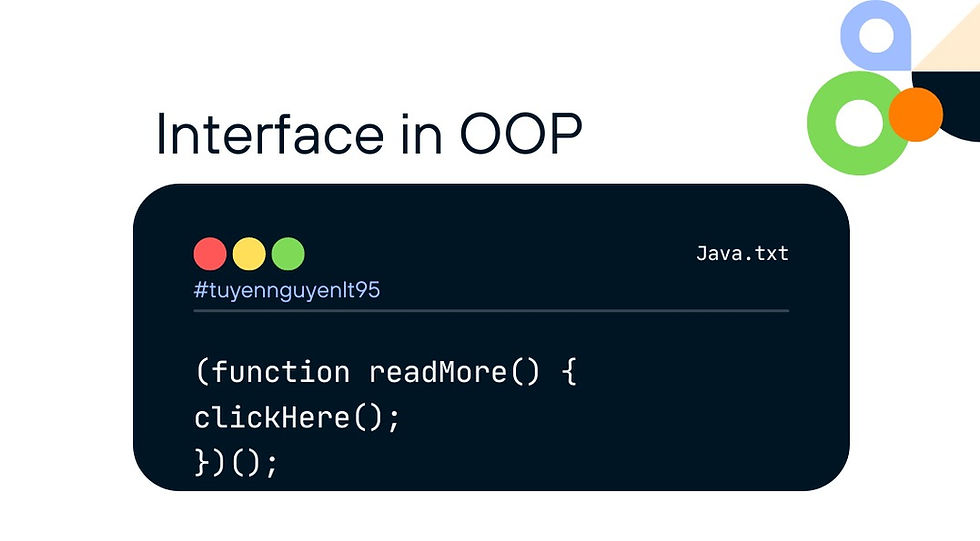Unleashing the Magic of Interfaces in Java: Let's Keep It Simple!
- Tuyen Nguyen
- Apr 9, 2024
- 2 min read
Updated: Apr 11, 2024
Today, let's dive into the awesome world of interfaces in Java. If you're scratching your head wondering what interfaces are all about, don't worry, we've got you covered. We'll break it down in the simplest way possible, with a cool example.
What's the Deal with Interfaces?
Okay, picture this: you have a bunch of classes, and they all need to do something similar, but not the same. How do you handle that without going bonkers? Enter interfaces! Think of interfaces as a blueprint for what methods your classes should have. They don't care how the methods work, they just make sure they exist.
Default and Abstract Methods: Keeping It Handy
Java 8 introduced two significant enhancements to interfaces: default methods and static methods.
Default methods provide a default implementation for a method within an interface, allowing classes implementing the interface to use this implementation without having to override the method.
On the other hand, static methods in interfaces offer utility methods that can be called directly on the interface itself, without requiring an instance of a class.
Example
In this example:
The Vehicle interface contains a default method start() and an abstract method accelerate().
The Car class implements the Vehicle interface and provides a concrete implementation for the accelerate() method. It inherits the default implementation of the start() method.
The Motorcycle class also implements the Vehicle interface. It overrides the default start() method and provides a concrete implementation for the accelerate() method.
In the Main class, we create instances of Car and Motorcycle and demonstrate their behaviour.
Wrapping It Up
And there you have it! Interfaces are like the secret sauce of Java programming. They help you organize your code, make it more flexible, and just overall cooler. So, next time you're building a Java project and things start getting messy, remember: interfaces got your back.




Comments